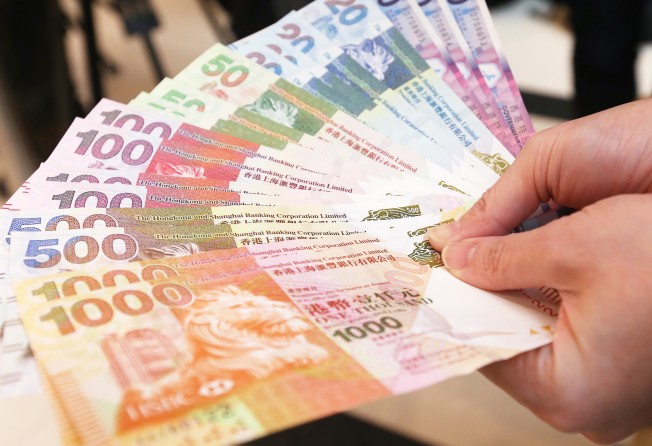Poorly performing Hong Kong dollar may trigger HKMA guidance

The Hong Kong dollar fell to an 18-month low on Monday, approaching last year’s level which forced the city’s de facto central bank to defend the currency peg with the US dollar.
It slipped for a seventh day to 7.8216 against the US dollar on Monday, approaching the January 18, 2016 low of 7.8295, which was the currency’s weakest level since the start of the global financial crisis in 2007.
The Hong Kong dollar has been the worst performer among Asia’s 11-most traded currencies in the past month, according to Bloomberg data.
Under the linked exchange rate system, the Hong Kong Monetary Authority (HKMA) is obliged to prevent the currency from breaching either side of a trading band between 7.75 and 7.85. In the current situation, it would sell US dollars and buy Hong Kong dollars to reduce interbank liquidity and raise Hong Kong dollar rates in order to curb depreciation pressure.
Historically however, the HKMA doesn’t wait for the currency to reach the 7.85 lower limit of the trading band before defending the peg, and may prefer intervening in currency markets pre-emptively to avoid panic among financial investors.
Last year, the currency dropping to the HK$7.8295 level was enough to trigger HKMA action, amid the sliding Hang Seng Bank index. But HKMA’s action added to the negative stock market sentiment. This year the Hang seng index is up but analysts say any action by the HKMA will also likely hurt sentiment.
Corporate lending and Hong Kong’s property market will likely be hurt by efforts by the HKMA to raise Hong Kong dollar rates to curb depreciation pressure, analysts said.
“As the HKMA defends the peg, market sentiment may reverse and cause funds to leave the city and the stock market to fall,” said Jasper Lo Cho-yan, the chief strategist at King International Financial Holdings.
ANZ Bank said in a research note that the HKMA was more likely to support the Hong Kong dollar if excessive speculative pressure continues through interest rate guidance rather than forex intervention. It may mop up flush Hong Kong dollar liquidity, the root of the problem, by issuing Exchange Fund Bills and Notes (EFBN) in the financial markets after keeping their outstanding balance steady this year.
If the HKMA starts to absorb liquidity through EFBN, Hong Kong dollar interest rates will face upwards pressure that will help stabilise the exchange rate, ANZ said.
Hong Kong’s financial market currently has ample liquidity as money is parked in the city for speculation in the property and stock markets, making commercial banks reluctant to raise their prime rates.
Commercial banks have kept their prime rate at 5 per cent even as the Federal Reserve has raised rates three times since 2015, which has caused a weakening of the Hong Kong dollar as investors sell the currency in exchange for US dollars in order to profit from the widened interest rate differential.
Mainland-related entities have also been actively converting Hong Kong dollars into US dollars to support their offshore activities, given the lower funding cost of the Hong Kong dollar, ANZ said in its research note.